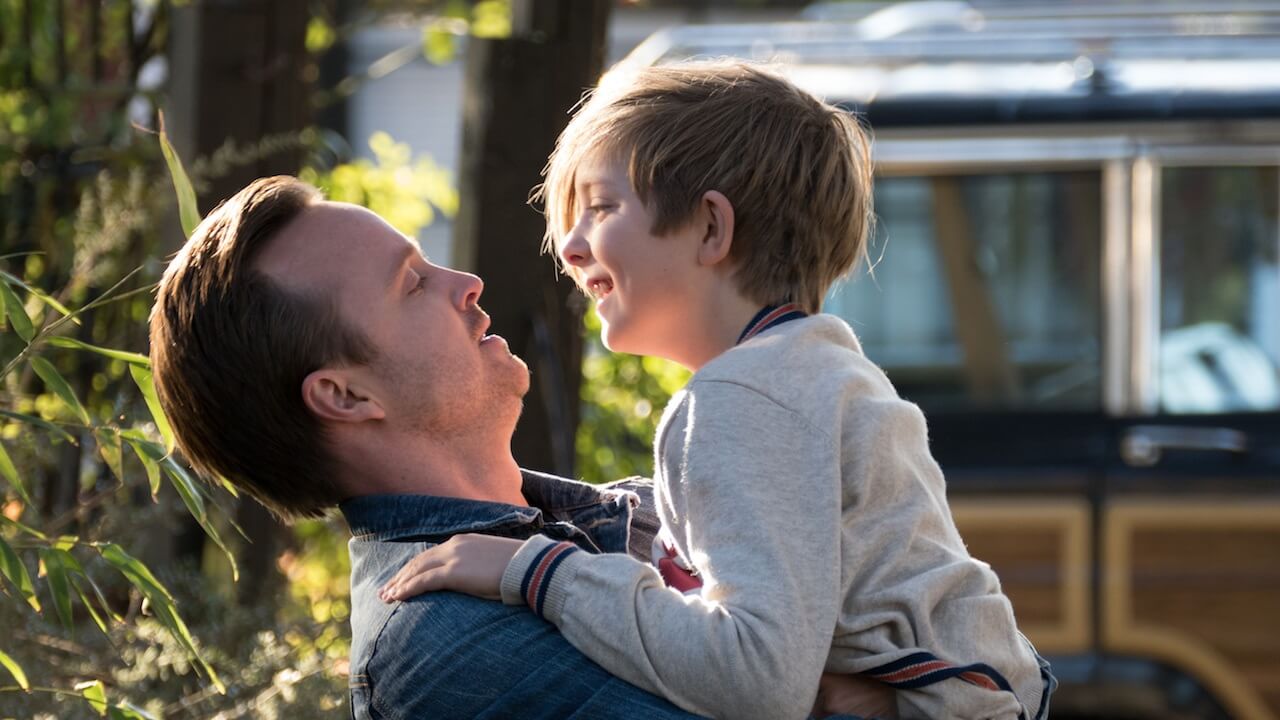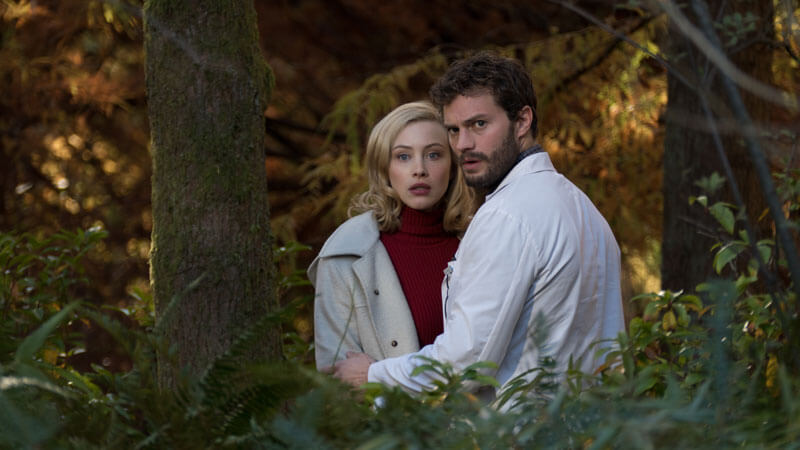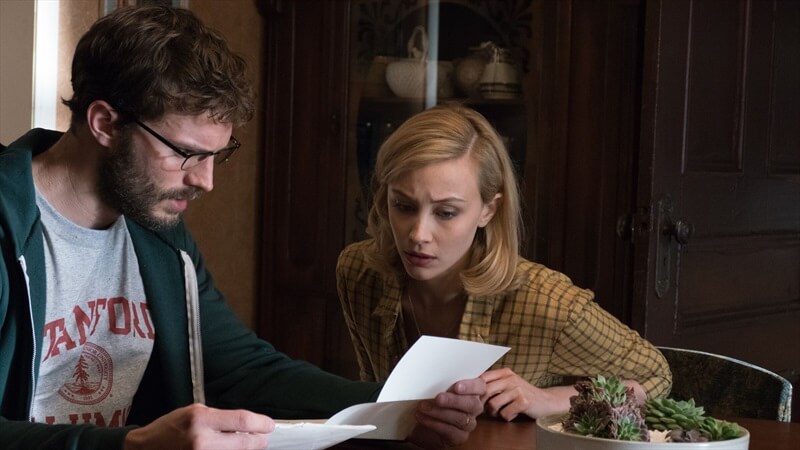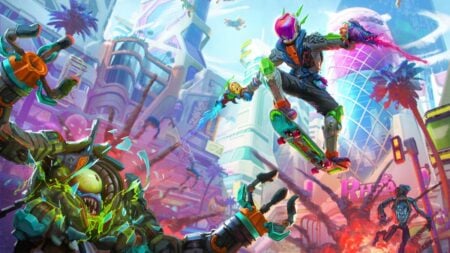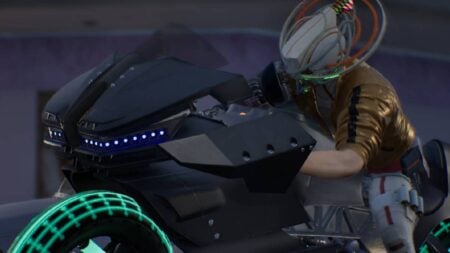Title: The 9th Life of Louis Drax
Release Date: September 2nd, 2016
Director: Alexandre Aja
Release Format: Theatrical
Making a film is often like attempting to put together a big jigsaw puzzle. All the right pieces have to fit together without being either forced together or utilizing pieces from another puzzle. Hopefully, by the end, you have a cohesive whole where all the parts come together to match what you initially set out to make. The best way to describe The 9th Life of Louis Drax is that it resembles a large puzzle with pieces pulled from a half dozen different puzzles. There are parts that knock it out of the park; mainly when it becomes a mystery in which uncovering ulterior motives and lies are at the forefront. However, it also includes jammed pieces or is missing some that were perhaps dropped on the floor.
The titular Louis Drax (Aiden Longworth) serves as both the main character as well as the narrator. Early on, Louis recollects his past experiences involving “fatal” accidents. Once the film gets to the present, he’s in a coma as a result of a cliff fall. His father (Aaron Paul) is nowhere to be found and his mother (Sarah Gadon) is hysterical about potentially losing her child. Under the care of Dr. Pascal (Jamie Dornan), secrets are revealed and questions are answered in a confusing but fascinating tonal mess of a movie.
Director Alexandre Aja has a very particular visual style that carries even his biggest cinematic misfires (Mirrors being a prime example). As demonstrated with his cheesy take on Piranha, he also knows how to balance comedic absurdity with the grotesque and disturbing. Like Piranha, Aja depicts Louis’s early accidents with a comedic sensibility albeit accompanied with great visuals. It’s almost cathartic to watch a filmmaker take such glee in electrocuting a child. That said, those scenes work because the film establishes itself as a children’s fantasy. Once Louis winds up in a coma, the fantastical is still present but it’s given a darker shade of paint. A series of dream sequences in which he talks to a mystical seaweed monster are ambiguous enough to make us wonder about their intent.
Rather than presenting the film’s secrets all at once, Aja and the screenwriters take their time to delve into the big questions. Why is Louis’s father nowhere to be found? What procures Louis’s extraordinary abilities? Will his mother ever find true love again? None of the other questions raised by the film are as compelling as how Louis’s recent accident occurred. The mysteries warrant dissection but when the film plays its hand, it can be incredibly disappointing. In addition, most of the conclusions can be deduced early on without much effort. It takes the wonder and mystique out of the film which completely sinks the majority of the second half.
If the first third of The 9th Life of Louis Drax is a fantasy, the other two-thirds primarily consist of sappy melodrama. Given his attentiveness to Louis and his mother, Dr. Pascal of course develops a romantic attraction towards her. From there, so many of the clichéd tropes of romance are touched upon from jealousy to shady truths. In comparison to the relationship between Louis and his father, the kindling romance between Pascal and Natalie is snuffed by a lack of investment. Speaking of which, Aaron Paul fans may be disappointed that his role is relatively minimal compared to others. Simplicity is a good thing but the relationship is as interesting as staring at your hand.
One of the elements that helps to salvage the monotonous second act are the flashbacks between Louis and his psychiatrist (Oliver Platt). These scenes go a long way in establishing that Louis is a child who was forced to grow up very quickly. He’s not purely precocious but he’s also not written with the vernacular of a Harvard graduate. The writers struck a careful balance, which is highlighted in his scenes with Dr. Perez. In a relatively solid ensemble, Platt stands head and shoulders above everyone else as the performance standout. Unlike the scenes between Pascal and Natalie, the chemistry between Natalie and Dr. Perez make for some of the best conversations of the film. They’re solid when they’re apart but the film shines when they are together. Aside from them and Louis, the other characters are poorly conceived and two-dimensional.
The 9th Life of Louis Drax reaffirms the theory that some films are better in segments rather than as cohesive wholes. Despite some big shortcomings in the scripting department, Aja compensates by ramping up the visual pastiche. He’s quickly cementing himself as a strong visual storyteller that should definitely be a bigger name than he is. The fantastical elements and strong first third don’t quite offset the disappointing conclusions. For all the faults, it’s a film that’s worth discussion and retrospective analysis well after the credits roll.
[review]

